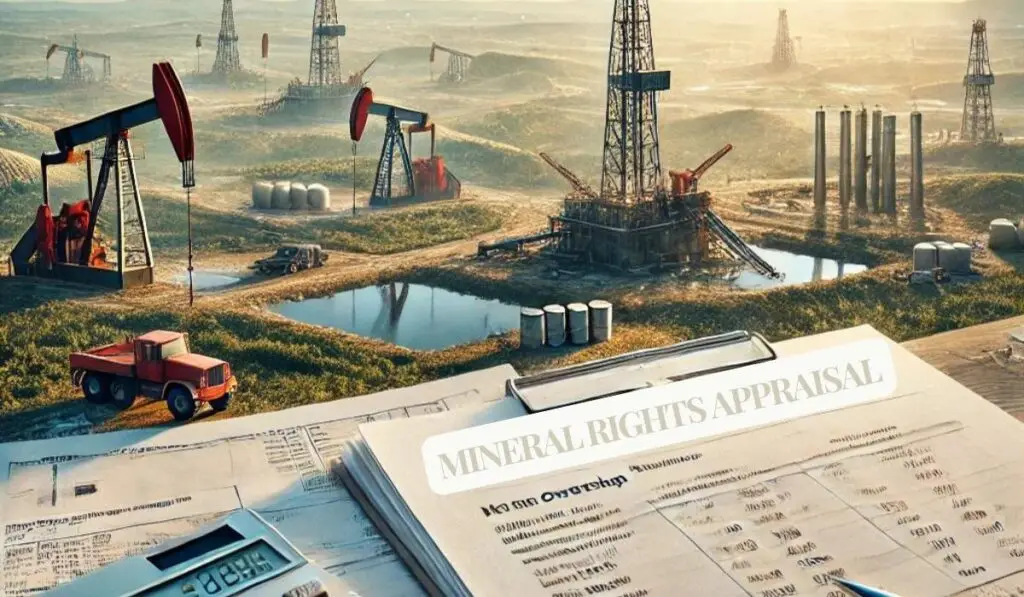I hear it all too often…
At the start of our consultation, a mineral and/or royalty owner tells me they have been offered loads of money to buy their interests and they want to know if it’s a good deal.
First, I feel grateful they have reached out to me for advice. It’s a good thing they didn’t rush into accepting the offer without doing their homework first. In fact, it’s in line with the #1 tip out of 5 that I recommend when it comes to dealing with mineral and royalty buyers.
Taking a deep breath and taking things slow is the best course of action, even if they tell you their offer will expire within a few days. Unfortunately, it’s a scare tactic used in the industry and frankly in any high level negotiations. I highly disagree with it; it’s a tactic that should immediately cause you to question the integrity of the buyer, no matter what you’re negotiating.
How Much Do Mineral Rights Sell For?
The first question that always comes to my mind is what do they know? What are they basing the mineral value to determine their price to purchase mineral rights? There are many factors buyers must consider when determining their buy price, many of which they know inexperienced interest owners may not be privy to.
I like to get to the point so here is the bottom line – in my experience, 90% of the time initial offers like this from buyers are going to typically be 50-80% of your assets true value. Although it could be significantly less than 50%, too.
Here’s a quick, real-life story about a recent experience I had:
One of my clients recently shared with me an offer letter from a buyer they received a year prior, in which they were offering a few thousand dollars for their interests. One year later, we’re working together to sell the same interests and the same buyer offers them over 100 times more.
Not 100%, but 100x!
Nothing had changed with the interest, there was no significant permitting or drilling activity to make it more valuable within that year. The only thing that did change was that the sellers were working with an industry professional now – one who knows exactly what they are doing when buying and selling interests.
Mineral Rights Value
There is only one bona-fide way to get the true mineral rights value of your assets, or rather their current value, and that is to start with a full scale, deep-dive into your asset. Conducting extensive research into your asset takes extensive knowledge in oil and gas land management: understanding title, deeds, conveyances, and leases, and much, much more.
Having worked as a Sr. Landman in medium to large E&P companies with geologists, engineers, attorneys, etc,. I can tell you with certainty that when you receive an offer from a buyer, they have not looked into your asset as thoroughly as I described…not yet anyway (more on this later).

The Stages Buyers Go Through to Determine a Mineral Price and Establish a Purchase Contract
Stage 1: All buyers have particular areas of interest, or AOI’s, they are focused on buying in. They have a few parameters to start with that they use to quickly identify an area. These parameters include:
- Drilling activity
- Operators
- Potential of multi stack formations or pay zones, and much more
Stage 2: They determine a mineral price for assets within their AOI based on some of the above factors. Most of the time they simply determine on a broad level what price they’re willing to pay in a particular area, meaning they essentially draw a circle or put a square on a map and establish their “offer price”. Then, a letter goes out to every mineral owner with the same quoted offer price. They use that price for everyone, no matter how much interest they own or what’s going on with any particular interest. This is considered to be a “bait” letter to see who responds.
Once someone responds to their bait letter, the buyer may then dig in a bit deeper, but chances are, they will simply try to get the seller to sign their offer letter right then and there, otherwise known as a Purchase and Sale Agreement. Depending on your particular situation or circumstances, the offer you received in the mail, and possibly signed, is almost inevitably bound to change with 90% surety once the buyer digs in.
As you might expect, the owners who own more interest, and most importantly, have more present activity going on affecting their interests within the buyer’s AOI, will most likely receive higher offers. This is not always the case, though. It also depends on how quickly you respond, how much you truly know about what you own, and what’s going on in the area.
Stage 3: Purchase and Sale Agreement Signed – the seller is locked into an agreement with the buyer
Be aware that once the buyer does have you locked into a PSA, it is then, and only then, when they will start to look deeply into your asset. This is the time when there is the potential for them to uncover a lot of things that could either work for, or against you, including:
- Finding out there is no near term activity affecting your interests – BOOM, there will be a downgrade in their mineral price. This will absolutely happen, guaranteed, if the group you sign with is a broker. With zero doubt, they will do it, and then sell it to another buyer, or flip it as we say, for exponentially more.
- Finding out there is less interest than they actually reported you owning when their letter went out – BOOM, there will be a downgrade in their mineral price. Conversely, if you own more interest than originally thought, the price should proportionately increase. Be mindful that buyers will always try to err on the side of you owning less interest hoping to bring the final buy price down. In fact, some buyers will represent that you own more at the time of signing knowing you own less, then they’ll run the title and come back and say you own less.
At this stage, sellers will also want to be aware of some of the tricks buyers try to incorporate within their PSA.
For instance, some buyers try to use a concept they call marketable title. Meaning the title has to be absolutely clear with no issues present so they can easily sell the same interest later. You may actually own the interest they originally thought, however, there are some unclear items about your title and there are additional documents that will need to be drafted, signed, and recorded in order for the operators to accept the change in ownership. These are called curative requirements, and buyers like to establish their own value for what these curative requirements actually represent.
Marketable title should never be used, and instead defensible title is better terminology to use. Defensible title means the ownership is there, and it may not be perfect, but it is clear that you own what you own, regardless of any curative issues that may be present. This way, you can push back if a buyer comes back with, “there are title issues, and we need to lower the price”. If you agree to the marketable title language, they will get all the interest anyways and likely won’t spend any time doing the curative requirements.
Final Thoughts
As I stated earlier, in the beginning buyers won’t spend the time, allocate resources, and money to take a deep look into your asset. They know based on their preliminary research that if they can hook you into a purchase price for a month or more with a PSA, they can then take their time to research it.
It’s highly important you carefully read your PSA contract prior to signing. You are likely to be locked into working only with them anywhere from 90-120+ days while they conduct their due diligence. It’s likely that when one buyer contacts you with an offer to purchase mineral rights, others will follow suit. You may receive higher offers from these other buyers, but there will be nothing you can do about it until your PSA expires.
Remember to never take the first offer you receive. It’s best to wait to see what follows.
Remember too that after running your title, if they find that you actually own less than what was originally known, they will come back to you with a reduced purchase price and it could be significantly less, and you will still have to do the deal. If, on the other hand, they discover you own more interest, they may, or may not, reveal this information to you. What they will do is insert some sly legal language into your PSA that could state something like, “All mineral rights, title, and other interest owned by Grantor in blank county/parish will be transferred to them regardless of being described accurately herein or not”.
There are many more tricks buyers use to gain an advantage, wear you down, or make it appear offers are decreasing and you need to act fast. If you don’t know with a fair degree of certainty what you own or what’s going on with your interest or in the area, don’t sign anything! No matter how enticing they may make the deal sound or how pushy they’re being, contact an honest professional to help you with the sale of your interests.
We’re here to help. Schedule a consultation today.





Leave a Comment